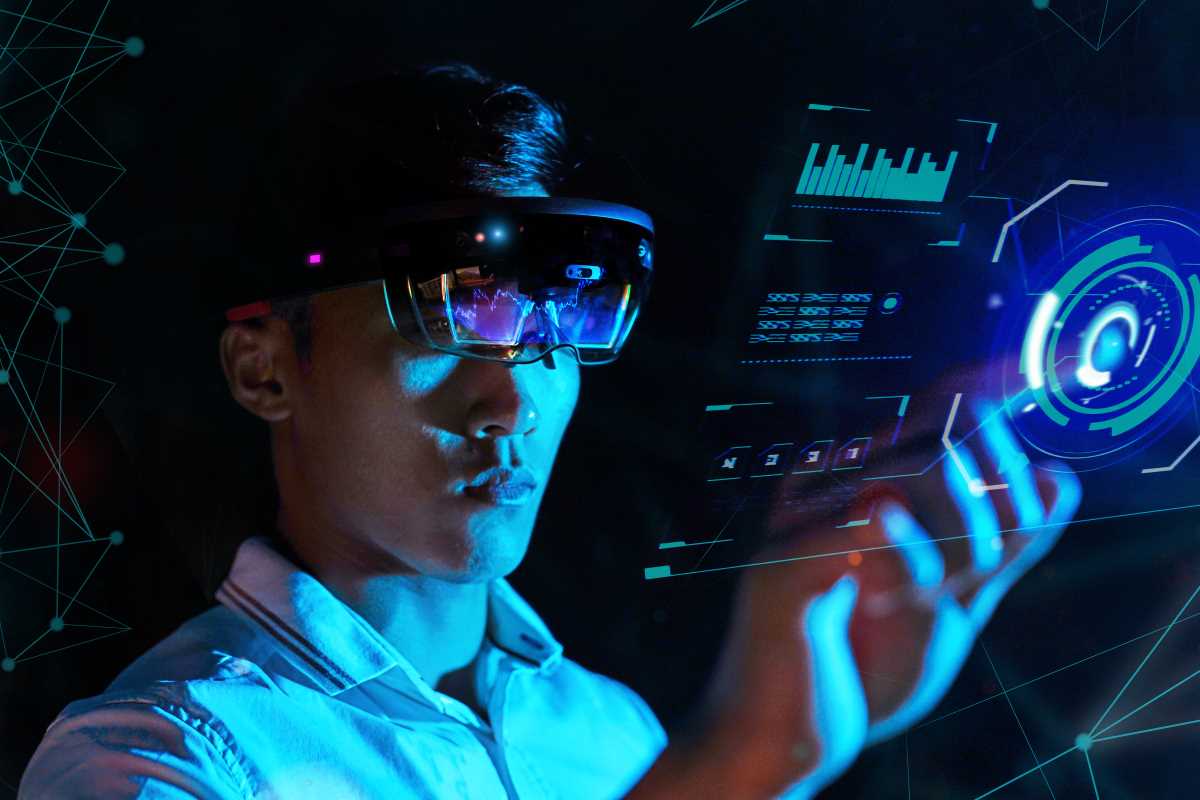If you’re a tech-savvy professional looking to level up your skills in a game-changing field, virtual reality (VR) therapy in healthcare should definitely be on your radar. It’s one of the most exciting mergers of emerging technology and the medical world, with its potential growing by the day. Curious to know how VR therapies are reshaping healthcare and how a degree in this field can accelerate your career? Stick around—we’re breaking it all down step by step.
What Is Virtual Reality Therapy?
First, let's talk about what Virtual Reality Therapy (VRT) actually is. VRT uses immersive VR technology to create controlled, simulated environments that help patients work through physical, emotional, or mental health challenges. It’s like stepping into a video game, but instead of chasing high scores, patients face situations or environments designed to achieve specific health outcomes.
For example, imagine a veteran with PTSD reliving controlled, therapeutic recreations of stressful scenarios to better manage triggers. Or a stroke patient practicing mobility skills in a virtual space that rewards their progress. From helping ease chronic back pain through distraction methods to training surgeons in life-like simulations, VR therapy is transforming healthcare across the board.
But what makes VR therapy such a unique approach is its deeply personal nature. Unlike generic solutions, VR environments can be entirely tailored to the individual’s needs, making treatments more effective and precise.
Why Healthcare Is Turning to VR Therapy
Healthcare has always been a space that benefits from innovation, and VR therapy is no different. Here's why this tech has drawn so much attention:
- Tailored patient experiences
- One of the most significant benefits of VR therapy is customization. Traditional therapy relies heavily on verbal communication or physical exercises, but VR allows professionals to immerse patients in hyper-specific, replicated situations. For example, someone suffering from a fear of public speaking can gradually learn confidence through simulated speaking events, while someone recovering from a sports injury can virtually practice movements with minimal physical stress.
- Breaking geographical barriers
- VR therapy can be a literal lifeline for patients in rural or underserved areas where quality healthcare resources are scarce. By bringing therapy sessions into the home, VR eliminates the need for costly or challenging travel, making treatments available to almost anyone with a compatible device.
- Safer training for healthcare professionals
- This technology is not just for patients. Medical practitioners can safely train in high-pressure environments without risking lives. Imagine surgeons learning to perform complicated procedures in a completely controlled, no-consequence VR environment before stepping into an operating room. This drastically enhances skill levels and minimizes risk.
- Cost-effective solutions
- Though VR’s initial setup costs might seem high, the long-term savings for healthcare facilities could be tremendous. VR tools can reduce the need for expensive physical equipment, reduce therapy session times, and provide reusable assets that make high-quality treatment more accessible and scalable.
The possibilities are endless, and this is only the beginning. Healthcare is one of the fastest adopters of VR innovation, with financial investments pouring in and creating endless opportunities to revolutionize care and training.
Why Consider a Degree in Virtual Reality Therapy?
If you’re amazed by the possibilities of VR therapy, you might be wondering how you can become a part of it. Pursuing a degree in VR therapy is a powerful way to jump into this pioneering field, combining technical know-how with healthcare’s practical impact. Here’s why getting formal education in this field is not just a good idea, but a potentially career-changing one:
- Stand out with specialized expertise
- The field is still emerging, meaning the competition is not as stiff as in older, more established industries. A degree in VR therapy will give you the specialized knowledge and practical experience to stand out in areas ranging from clinical healthcare to tech development.
- Enter a high-demand field
- Job opportunities in virtual reality healthcare are expanding rapidly. According to market trends, the use of VR in healthcare is anticipated to grow exponentially in the coming years, with applications developing in mental health, rehabilitation, surgery, and patient training. Hospitals, startups, and even government health sectors are looking for professionals who are skilled in marrying technical tools with healthcare principles.
- Flexibility in career paths
- This field beautifully blends science, art, and technology. With a VR therapy degree, you can choose from a variety of roles, whether it’s designing immersive technology, working directly with patient care, or leading the ethics and approval regulatory panels around VR’s integration.
The bottom line? A degree in this field means you’re future-proofing your career in a technology-driven healthcare industry.
What You'll Learn in a Virtual Reality Therapy Program
Virtual reality therapy programs are a bit like a Venn diagram where technology, psychology, and medical knowledge intersect. Here's what you'll typically learn in such programs:
1. VR Development and Design
You’ll get into the nitty-gritty of XR (Extended Reality) platforms like Unity and Unreal Engine. These tools will allow you to design interactive, immersive environments catered to health improvements—from pain management scenarios to cognitive-behavioral therapy modules. Hands-on experience with hardware, like VR headsets and motion capture systems, will also ensure you’re as comfortable with the tools as with the theories.
2. Healthcare Foundations
Even though these programs are tech-heavy, they don’t overlook the human aspect of healthcare. Expect coursework in areas like behavioral psychology, anatomy, neuroscience, or specialized medical fields that correlate with VR development. This foundational knowledge is key to ensuring the VR simulations you develop align with real therapeutic needs.
3. Clinical Applications
You’ll study how VR therapy is applied in real-world healthcare settings. For instance, you might examine case studies where immersive environments have reduced chronic pain or rehabbed stroke patients. Many programs even offer opportunities for clinical practice, letting you see the impact of your VR solutions firsthand.
4. Understanding Ethics and Data Privacy
When medical data is involved, the stakes are high. You’ll learn about HIPAA compliance, ethical considerations, and how to incorporate privacy-first strategies into your projects. This ensures your work not only improves lives but also aligns with legal and moral standards.
Types of Programs Available
If you’re thinking about pursuing a degree or certification in VR therapy, there’s a range of academic paths to consider:
Certificate Programs
Certificate programs are short-term options designed to get you started quickly. These courses typically cover fundamental aspects of VR in healthcare and may involve online learning. They’re ideal for professionals looking to upskill or explore the field before committing to a full degree.
Bachelor’s Degrees
A bachelor’s program provides a more comprehensive education, combining healthcare basics with VR design and tech development. You'll graduate well-rounded and ready to enter various roles in the industry.
Master’s Degrees
For a deeper understanding, master’s degrees open pathways to research, specialized applications, and more advanced technical knowledge. Master’s students often partner with healthcare organizations to test and implement VR therapies, gaining real-world insights.
Where Can You Study VR Therapy?
Considering where to enroll? Institutions offering VR therapy programs range widely in focus and curriculum:
- Tech and Design Institutes
- Schools like DigiPen and MIT focus on the technical side of developing VR worlds, equipping you with hard skills in programming and design.
- Medical Schools and Universities
- Many universities, including Stanford and Duke, incorporate VR electives in healthcare curricula, giving a broader, clinical perspective.
- Niche Online Programs
- Platforms like Coursera and edX feature certificates that are affordable, accessible, and often industry-recognized. These work well for professionals seeking flexibility.
Careers in Virtual Reality Therapy
Once you’ve completed your degree, the number of career paths in this field might surprise you. Here are just a handful of options:
- VR Healthcare Developer
- From creating scenarios for PTSD patients to developing pain-distraction tools, this role lets you design immersive tech from the ground up.
- Clinical VR Specialist
- Work directly in healthcare settings, helping doctors and therapists implement VR solutions effectively.
- Rehabilitation Therapist
- Use VR environments to accelerate physical, cognitive, and mental rehabilitation for patients recovering from injuries, surgeries, or trauma.
- Medical Training Designer
- Specialize in creating lifelike training programs for medical students and professionals, simulating surgeries, ER emergencies, and more.
- Mental Health VR Consultant
- Develop specific tools to address mental health issues, ranging from phobias to ADHD treatments, in an immersive, patient-centered way.
Is VR Therapy the Future?
VR therapy is no longer science fiction; it’s here, and it’s making an impact. From improving patient outcomes to reducing costs and democratizing access to care, its potential is limitless. Global investment in this technology signals one clear message—we're at the start of a revolutionary way to approach healing, learning, and medical progress.
Getting Started
If this excites you, what’s the next step? Research degree programs, online courses, or internships that focus on VR development and healthcare. Collaboration and curiosity will play a big role in how far you’ll go in shaping this innovative field. Before you know it, you could be on the frontlines of blending technology and empathy to create better healthcare for all.
 (Image source: Midjourney)
(Image source: Midjourney) 





